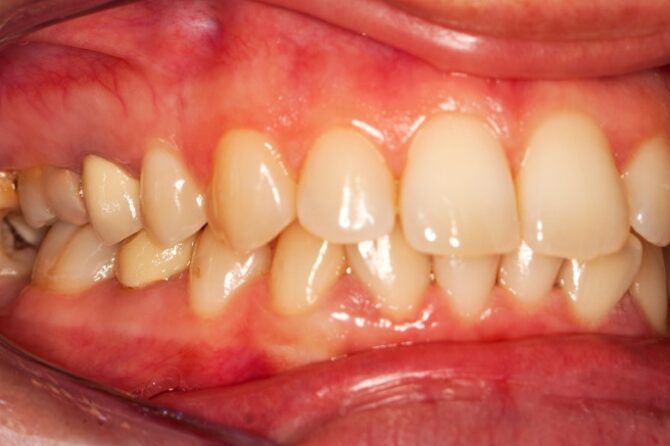
Discover Risk Factors, Prevention & Home Remedies for Gingivitis
“Gingivitis is a common yet serious gum condition that can lead to more severe dental health problems. While it’s natural for gums to be slightly red, swollen and tender, if these symptoms persist and worsen over time then the individual may be suffering from gingivitis. Gingivitis is caused by poor oral hygiene and the buildup of plaque on teeth and along the gum line. When plaque accumulates, it produces toxins that irritate and inflame the gums. Plaque-induced gingivitis can progress and cause other serious oral health issues, such as periodontal disease. If left untreated, gingivitis can cause significant trouble to the health of the entire body, including heart disease, stroke, diabetes, dementia and other conditions. For this reason, maintaining good oral hygiene practices and scheduling regular appointments with a doctor is essential for keeping the mouth healthy. To prevent and treat gingivitis, there are some key steps individuals should take to avoid irritation and plaque formation. Daily brushing and flossing help keep bacteria at bay and reduce the risk of plaque buildup. Additionally, using special toothpastes or mouthwashes formulated with antiseptic and anti-inflammatory ingredients, such as aloe vera, can help soothe and protect inflamed gums. Regular visits to the dentist should also be scheduled to spot early signs of gingivitis and receive professional oral care advice. An experienced professional can diagnose and properly treat any issues with the mouth, further reducing the risk of developing serious conditions. Gingivitis is an all too common condition, but with the right preventive measures and professional care, we can all keep our mouths healthy and happy.

Is Gingivitis Contagious?
Gingivitis is an inflammation of the gums that can cause bleeding, redness and swelling. It is caused by a buildup of plaque on the teeth due to poor dental hygiene. But is it contagious? The scientific consensus is that gingivitis itself is not contagious. Although there are bacteria and viruses associated with gingivitis, these microbes are usually present in the mouth already and do not spread from person to person. However, recent research suggests that there is still a link between gingivitis and contagion. For example, one study found that people who had frequent contact with someone with gingivitis were more likely to develop symptoms themselves. Other studies have also shown that sharing dental instruments, such as toothbrushes, or engaging in activities such as kissing can potentially spread the virus or bacteria responsible for gingivitis. These findings suggest that while gingivitis cannot be directly spread from person to person, there are ways that it can be transmitted. Therefore, although gingivitis itself is not contagious, it is possible for it to be spread through contact or shared items. It is therefore important to be aware of the potential risks and take steps to reduce them.
What Are the Risk Factors for Gingivitis?
Gingivitis is an inflammation of the gums and other tissues that support the teeth. It occurs when bacteria living in our mouths cause an infection on the gums and other areas in the mouth. You can reduce your chances of developing or spreading gingivitis by understanding the risk factors associated with the condition.
The most common risk factors for gingivitis include poor oral hygiene, smoking, diabetes, dry mouth, certain medications, hormonal changes, heredity, and illnesses such as HIV or AIDS.
Poor oral hygiene is a major risk factor for gingivitis. This includes inadequate brushing and flossing, which can lead to plaque accumulation on the teeth and gums. Plaque contains high levels of bacteria that can cause infection. Smoking also increases your risk of developing gingivitis by hindering your body’s ability to fight the bacteria that cause the infection.
Diabetes can also contribute to the development of gingivitis. Diabetes weakens your body’s ability to fight infection and can make it harder to prevent and heal from gingivitis. Dry mouth, which happens when there is not enough saliva to wash away bacteria, and certain medications can also increase your risk of developing gingivitis.
Hormonal changes due to puberty, pregnancy, or menopause can affect the health of your gums and make them more prone to gingivitis. Heredity may play a role too, as some people are genetically predisposed to gum inflammation. Finally, illnesses such as HIV or AIDS can suppress your immune system and make you more vulnerable to developing gingivitis.
Preventing Gingivitis
Prevention is always better than cure. Especially when it comes to gingivitis, a disease that can leave you with inflamed and painful gums. If you want to prevent gingivitis from ever taking a foothold, there are a few simple steps that you can take.
The most important thing you can do to prevent gingivitis is to brush and floss your teeth twice a day. Brushing removes plaque, the sticky film of bacteria that can build up on teeth and form cavities, while flossing removes food and plaque between teeth. This helps keep teeth and gums healthy and free of the bacteria that can cause gingivitis.
You should also visit the dentist regularly. See your dentist at least once every six months, or if you have any symptoms of gingivitis such as redness, tenderness, or bleeding gums. The dentist can diagnose gingivitis and start treatment right away.
It’s also important to watch your diet. Avoid sugary snacks and drinks, which can increase the level of acid in your mouth and consequently lead to tooth decay and gingivitis. Eating plenty of crunchy fruits and vegetables can help scrape away plaque from the surface of your teeth.
Finally, be aware of the medications you are taking. Certain medications dry out saliva, which can increase the risk of gingivitis. Talk to your dentist if you are worried about any of your medications.
Home Remedies for Gingivitis
Gingivitis is a common condition that can be treated, and sometimes even prevented, with changes in your oral health routine. Here are some things you can do at home to reduce the risk of catching or spreading gingivitis:
- Brush your teeth twice a day with a soft-bristled toothbrush.
- Floss your teeth at least once a day.
- Use an antibacterial mouthwash to reduce bacteria.
- Eat a healthy diet to promote overall oral health.
- Change your toothbrush frequently to keep it clean.
- Schedule regular checkups with your dentist.
If you already have gingivitis, it is important to take extra precautions to reduce the spread of infection. Make sure that any items you use to clean your mouth, such as toothbrushes and floss, are kept clean. Also, avoid sharing items like razors or toothbrushes with anyone else.
Clinical Treatments
If you think you may have gingivitis, it’s very important to ensure you book an appointment with a dentist or doctor as soon as possible. They can diagnose the condition and provide effective treatment, helping to reduce pain and improve your oral health.
The most common treatments for gingivitis involve eliminating bacteria from your mouth. This is done by thoroughly cleaning your teeth and gums and removing any plaque build-up. Your dentist may suggest more frequent visits for professional cleaning or a course of antibiotics to reduce inflammation.
In some cases, your dentist may recommend surgical treatments to remove damaged or diseased tissue. These treatments can help restore your gums to a healthy state and reduce the risk of further complications.
Your dentist may also prescribe mouthwashes or topical gels that contain antibiotics to fight the bacteria causing gingivitis. For more severe cases, a combination of treatments may be necessary.
It’s important to follow your dentist’s instructions carefully to ensure the most effective treatment. With proper care, gingivitis can usually be reversed, restoring your oral health and reducing your risk of developing more serious complications.
In conclusion, gingivitis is a type of gum disease that can range from mild to severe, and while it is not contagious through direct contact with saliva, it is possible to transmit it through other means. It is important to understand the risk factors associated with gingivitis and to take preventive measures to reduce the chances of catching or spreading the disease. Home remedies and clinical treatments are available to help reduce the symptoms and treat gingivitis more effectively. By using these methods in combination, individuals can prevent the progression of the disease and maintain healthy gums. “
Frequently Asked Questions about Gingivitis
- Q: What is gingivitis?
A: Gingivitis is an inflammatory condition of the gums that is caused by plaque buildup. It is characterized by red, swollen gums that can bleed when brushed and painful pockets around the teeth. - Q: Is gingivitis contagious?
A: No, gingivitis is a bacterial infection that is not contagious. - Q: What are the risk factors for gingivitis?
A: Poor oral hygiene, smoking, diabetes, genetic predisposition, hormonal changes, nutritional deficiencies, gender, and certain medications can all increase risk of developing gingivitis. - Q: How can I prevent gingivitis?
A: Good oral hygiene is essential to preventing gingivitis. Brush and floss regularly and visit your dentist twice a year for check-ups and professional cleaning. - Q: What home remedies can I use for gingivitis?
A: Home remedies for gingivitis could include using salt water rinses, honey, clove oil, green tea, aloe vera, and specific vitamins and minerals as supplements. - Q: What clinical treatments are available for gingivitis?
A: If you suspect you may have gingivitis it is best to visit your dentist for a professional evaluation and treatment. The dentist may perform scaling and root planing, laser and antibiotic therapy, or refer you to a periodontist for more advanced treatments. - Q: What is the conclusion about gingivitis?
A: Gingivitis is an inflammatory condition of the gums caused by bacterial plaque buildup. It is not contagious, but certain factors can increase the risk of developing it. Good oral hygiene is necessary to prevent gingivitis and a number of home remedies and clinical treatments are available should it be necessary.
